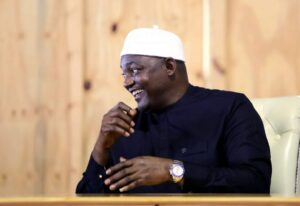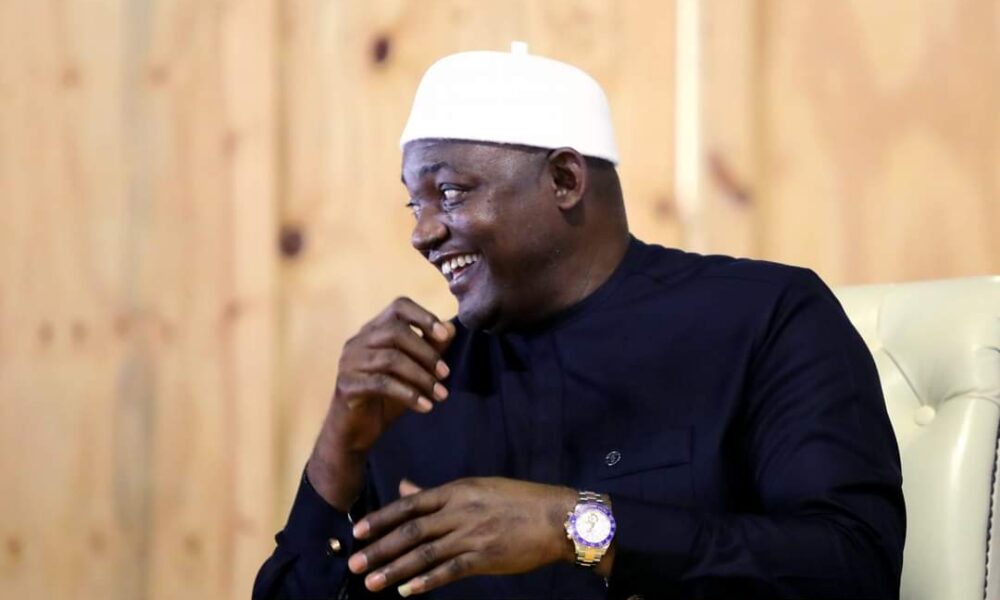There is certainly no doubt that President Adama Barrow is within his constitutional powers to set up a ‘Commission of Inquiry into the Conduct of all Local Government Councils and for Connected Matters’, whose primary objective is to conduct a thorough investigation into the financial and other activities of all the local government councils, a majority of whom are currently headed by the opposition United Democratic Party (UDP).
However, the timing of the commission is not only suspicious, but it seems to have all the hallmarks of a political witch hunt, with the next local government elections just a few weeks away. We have all seen or heard how President Barrow, both in words and action, had shown his determination to wrest control of the councils, particularly the KMC and Banjul from his main political rival, the UDP in the forthcoming local government elections.
It all came to the surface in January 2022 when the government tried to use the problems that arose between the Kanifing Municipal Council (KMC) and its erstwhile Chief Executive Officer (CEO), Mrs. Sainabou Martin-Sonko, culminating in the then Minister of Regional Governments, Musa Drammeh proposing a similar commission of inquiry on the KMC, which failed to proceed, apparently because it was not grounded on reality. The apparent objective then, it appears, was to get the suspended CEO re-instated despite the serious allegations against her, no doubt to use her to curb the powers and authority of Mayor Talib Ahmed Bensouda.
While this commission is targeting all the area and municipal councils, but even the biggest political novice knows that the main target is the KMC, which is by far the biggest and most financially lucrative municipality, and the Barrow administration is ready to do whatever it takes to gain control of it. However, many political analysts agree that it is not quite a wise gamble as it has the potential to lead to some unpredictable consequences both for the elections and the government’s very own credibility among its development partners. Why not wait until after the local government elections when the political tension would have been much lower?
Let me quote from an article I wrote on the issue in January 2022, which I feel still holds water;
“To most members of the Barrow administration, the KMC is the biggest prize worth every drop of their blood and as such, they would utilize every trick in the playbook to get rid of Talib, including using former Mayor Yankuba Colley to help them use the tricks that the APRC had been using to get the municipality under their grip for over 20 years.
“There is absolutely no doubt that the Talib administration had been the most successful that the KMC municipality has ever had and it is in the interest of the entire country that Talib should be given the chance to continue with the good work he has embarked on.
“However, when we recall how the Ministry handled the corruption scandal involving the former KMC Chief Executive Officer and unsuccessfully using all possible means to get her re-instated, despite overwhelming evidence against her, it is obvious that the target had always been to get rid of Talib at whatever cost. This commission of inquiry is therefore the latest attempt to achieve that objective.
“This blatant form of political suppression of those who hold contrary views to his administration is certainly neither in President Adama Barrow’s own interest nor in the national interest. It is sending quite a negative signal to the Gambia’s development partners that rather than embark on a genuine fight against corruption, the government is bent on witch-hunting its opponents and those who hold contrary views.
“There are of course many other corruption scandals that deserve commissions of inquiry than the KMC. We have recently, for instance, heard about the millions of Dalasi of COVID money allegedly squandered at the Ministry of Health as well as the Gam Petroleum fuel saga, and yet nothing is being heard from the government about those scandals let alone set up commissions of inquiry to reveal what had happened.”
We ca also recall that during his Meet the Peoples’ Tour in December 2022, shortly before the presidential elections, President Barrow announced his intentions to impose an administrator on both the BCC and the KMC, the only administrative areas without a regional governor, no doubt, with the objective of curbing the powers and influence of the mayors in those two municipalities.

During a meeting at the Buffer Zone, he gave an example of how the governors up country are the lords of the area councils. Therefore, he said the administrators that he intends to appoint in Banjul and KM “will be heads of all government institutions within KM and Banjul and will represent the government as well.”
Therefore, the present trend with the Barrow administration is quite reminiscent of what had been happening under the Yahya Jammeh regime, which of course should not be a surprise to anyone, seeing how the Jammeh-enablers have made it back in government in a very big way. The trend seems to point to the Barrow administration gradually taking us back to those bad old days and beginning to get more dictatorial as he consolidates himself in power. It is even quite interesting that as we are yet to get a Vice President, the Speaker of the National Assembly, Fabakary Tombong Jatta, a prominent Jammeh loyalist, is the second in command in the line of succession. It is therefore, only the President who is between him and the presidency, which sort of scenario was definitely unimaginable when Jammeh was booted out in 2017. This is definitely not the type of situation that Gambians bargained for when many of us risked everything to get rid of the Jammeh dictatorship.





